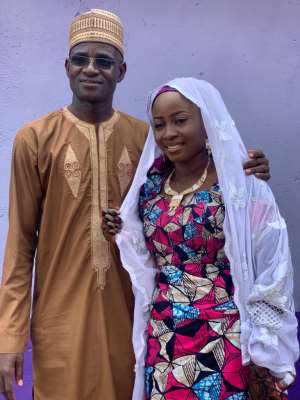
Introduction
Although “wedding” and “marriage” could be viewed as synonyms in general context, they are substantially different in meaning and usage. One thing fundamentally common to the two words is love. Below is the explanation of the differences between “wedding” and “marriage.”
Wedding
WEDDING is the set of ceremonies and rituals performed in honor of a couple to signify the societal attestation and recognition of a romantic relationship between them. The ceremonial and ritual activities (of wedding) differ from culture to culture, religion to religion, race to race, tribe to tribe.
Marriage
Contrarily, MARRIAGE refers to the expected life-long love relationship between a man and a woman in a traditional context. In contemporary times, however, same-sex marriages - by gays and lesbians - are accepted in many jurisdictions particularly in Europe and the Americas.
This implies that MARRIAGE is primarily about the life of the two individuals as lovers, while WEDDING is about the ceremony to symbolize public recognition of the life of the individuals as lovers.
Illustrative Sentences
To maximize comprehension, we may consider the following illustrative sentences:
Wedding
- Azindoo is in Bawku to attend a WEDDING between Waalida and Hafiz.
- Yesterday, the WEDDING of Suhudoo and Suglo was an occasion of food galore.
In both sentences above, the “wedding” is a short ceremony NOT a life-long affair.
Marriage
- Following intense external influences, the MARRIAGE between Chalpang and Njelwuni ended on a sad note.
- In African tradition, MARRIAGE is seen as a source of genealogical continuation.
In the two sentences above, MARRIAGE is viewed as life-long NOT ceremonial.
Grammar and Usage
It is significant to state that “wedding” and “marriage” belong to the same grammatical family: nouns. In terms of usage, however, both of them can act as modifiers. This way, they become noun adjuncts - nouns functioning as adjectives and quantifying other nouns. Let us consider some examples in the following sentences:
- The Maachandi Family has organized a WEDDING party in honor of Waalida.
In this sentence, “wedding” which is a noun functions as an adjective describing the other noun “party.”
- MARRIAGE issues are complex in modern society.
In this sentence, “marriage” which is a noun functions as an adjective describing the plural noun “issues.”
Conclusion
Conclusively, dear reader, LITERARY DISCOURSE draws the attention of the public to some incorrect phrases in relation to “marriage” and “wedding.” An example is “invitation to one’s marriage.” Since “wedding” is the ceremony, it is only proper that we invite to “wedding” NOT “marriage.” In fact, “invitation to marriage” could be dangerous. For instance, if your wife invites Yong Dasana, a proverbial rapist in Dagbon History, to your marriage (home), the result can be... 🤪🤪🤪🤪
Allah is The Best Linguist
Dedication
This discourse is dedicated to the lovely daughter of mine, Madam Waalida, and her husband, Mr. Hafiz, on the occasion of their WEDDING. May Allah bless the union. Ameen
By Dr. Mohammed Marzuq Abubakari
Lecturer, University of Applied Management, Ghana




 We’ll protect state wealth from opaque deals – Prof Jane Naana
We’ll protect state wealth from opaque deals – Prof Jane Naana
 Mauritania president says running for second term in June polls
Mauritania president says running for second term in June polls
 I won't ever say I was a mere driver’s mate' — Prof. Opoku-Agyemang
I won't ever say I was a mere driver’s mate' — Prof. Opoku-Agyemang
 2024 polls: 'EC struggling to defend credibility'— Prof. Opoku-Agyemang
2024 polls: 'EC struggling to defend credibility'— Prof. Opoku-Agyemang
 Akufo-Addo gov't's 'greed, unbridled arrogance, unrestrained impunity, sheer dis...
Akufo-Addo gov't's 'greed, unbridled arrogance, unrestrained impunity, sheer dis...
 Election 2024: Ghana needs an urgent reset, a leadership that is inspiring – Ma...
Election 2024: Ghana needs an urgent reset, a leadership that is inspiring – Ma...
 Partner NDC to rollout a future of limitless prospects – Prof Jane Naana Opoku-A...
Partner NDC to rollout a future of limitless prospects – Prof Jane Naana Opoku-A...
 NPP will remain in gov’t till Jesus comes — Diana Asamoah
NPP will remain in gov’t till Jesus comes — Diana Asamoah
 Sunyani Technical University demands apology from former SRC president over sex-...
Sunyani Technical University demands apology from former SRC president over sex-...
 'Dumsor' was resolved by Mahama but ‘incompetent' Akufo-Addo has destroyed the g...
'Dumsor' was resolved by Mahama but ‘incompetent' Akufo-Addo has destroyed the g...
